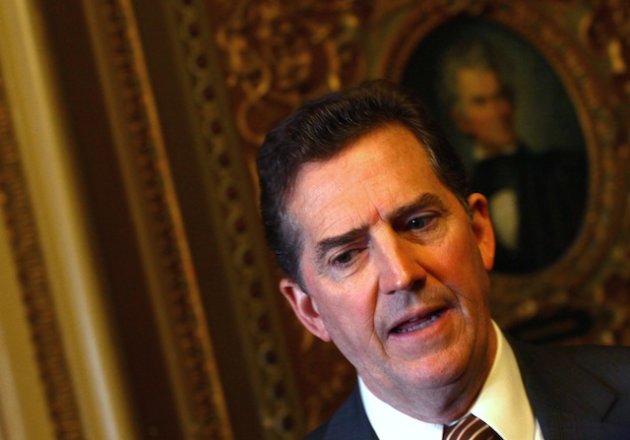MANILA, Philippines (AP) — At least 43 villagers and soldiers drowned in a southern Philippine town Tuesday when torrents of water dumped by a powerful typhoon cascaded down a mountain, engulfing emergency shelters and an army truck, officials said. The deaths raised the toll from one of the strongest storms to hit the country this year to at least 74.
Gov. Arturo Uy said rain from Typhoon Bopha accumulated atop a mountain and then burst down on Andap village in New Bataan town in hard-hit Compostela Valley province. The victims included villagers who had fled from their homes to a school and village hall, which were then swamped by the flash flood. An army truck carrying soldiers and villagers was washed away, according to Uy and army officials.
"They thought that they were already secure in a safe area, but they didn't know the torrents of water would go their way," Uy told DZBB radio.
He said the confirmed death toll in the town was likely to rise because several other bodies could not immediately be retrieved from floodwaters strewn with huge logs and debris.
Bopha slammed into Davao Oriental province region at dawn, its ferocious winds ripping roofs from homes and its 500-kilometer (310-mile) -wide rain band flooding low-lying farmland.
The storm, packing winds of 140 kilometers (87 miles) per hour and gusts of up to 170 kph (106 mph), toppled trees, triggered landslides and sent flash floods surging across the region's mountains and valleys.
Two entire provinces lost power and more than 100 domestic flights were canceled. About 60,000 people fled to emergency shelters.
Twenty-three people drowned or were pinned by fallen trees or collapsed houses in Davao Oriental province's coastal town of Cateel, which had the most deaths after New Bataan, Davao Oriental Gov. Corazon Malanyaon told the ABS-CBN TV network, citing police reports.
Some towns in the province were so battered that no roofs remained on buildings, Malanyaon said.
The other deaths included three children who were buried by a wall of mud and boulders that plunged down a mountain in Marapat village, also in Compostela Valley. Their bodies were wrapped in blankets by their grieving relatives and placed on a stage in a basketball court.
"The only thing we could do was to save ourselves. It was too late for us to rescue them," said Valentin Pabilana, who survived the landslide.
In Davao Oriental, a poor agricultural and gold-mining province about 1,000 kilometers (620 miles) southeast of Manila, an elderly woman was killed when her house was struck by a falling tree, said Benito Ramos, who heads the government's disaster-response agency.
The other victims either drowned or were hit by trees, he said, adding that the death toll was expected to rise.
While some 20 typhoons and storms normally lash the archipelago nation annually, the southern provinces battered by Bopha are unaccustomed to fierce typhoons, which normally hit the northern and central Philippines.
A rare storm last December killed more than 1,200 people and left many more homeless and traumatized, including in Cagayan de Oro city, where church bells pealed relentlessly on Tuesday to warn residents to scramble to safety as a major river started to swell.
Officials were taking no chances this year, and President Benigno Aquino III appealed on national TV on Monday for people in Bopha's path to move to safety and take storm warnings seriously.
In Compostela Valley, authorities halted mining operations and ordered villagers to evacuate to prevent a repeat of deadly losses from landslides and the collapse of mine tunnels in previous storms.
Bopha, a Cambodian word for flower or a girl, is the 16th weather disturbance to hit the Philippines this year. Forecasters say at least one more storm may strike the country before Christmas.
___
Associated Press writer Teresa Cerojano contributed to this report.



